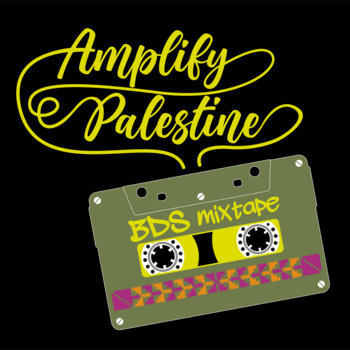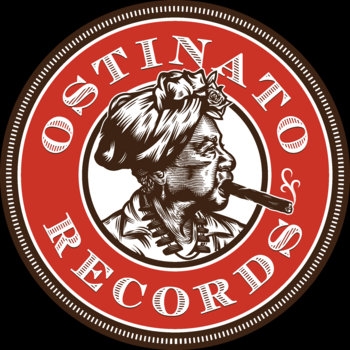
Queer protest folk from Chile, feminist reimaginings of Anglo-Saxon murder ballads, Slovak-Hungarian vocal drones, and lullabies from Eastern Europe to the Caribbean: November saw the release of a laundry list of music connecting folklore to politics in ways both subtle and not-so-subtle.
Javiera Electra
REPRÍS


Since 2021, Chilean singer Javiera Electra has been building community around queer protest from Valparaíso to Concepción by touring and performing in ollas comunes (community kitchens) throughout the country. On REPRÍS, she melds the personal with the political, the acoustic with the electronic. Wisps of distortion loom beneath the bright guitar tones on these tracks, a refreshing take on nueva canción chilena which owes as much to SOPHIE as it does to Rolando Alarcón. The emotions come to a head in the swelling, distorted guitars on “Colisión/Reprís,” while “Cuarta pared” concludes with a noisy sermon to queer sovereignty over the self: “Desde hoy declaro amarme y odiarme/ Soy mi única amante y mi única enemiga” (From today I declare to love me and hate me/ I am my only lover and my only enemy).
Amplify Palestine BDS Mixtape
Rise Up: BDS Mixtape Vol. 2


“Folklore is resistance,” writes ethnomusicologist David A. McDonald in his 2013 book My Voice Is My Weapon: Music, Nationalism, and the Poetics of Palestinian Resistance. The producers of the Amplify Palestine BDS Mixtape series take that statement and put it into practice. Inspired by Artists United Against Apartheid and their work towards ending South African apartheid, Amplify Palestine aims to mobilize music for Palestinian freedom. “Checkpoint / Dompass / Hajiz” by the Free Radicals directly recalls the parallels between restricted mobility in apartheid South Africa and occupied Palestine, with a vocal sample from South African Lindi Yeni topping off the track’s funky rhythm: “I am a native of this country/ I am a daughter of the soil/ You brutally pushed my people into the worst part of our country/ And you dare ask me for a permit?” Other tracks directly draw from Palestine’s rich musical tradition. “Folktronic Mafraq Haifa” by the El-Funoun Palestinian Dance Troupe infuses dabke beats with bouncing bass and thick synth lines. From Afro-Latin rhythms (“Insurrealista”) to Punjabi-inflected reggae (“Koi Bol Ram”), Rise Up Vol. 2 flits across diverse musical traditions, imagining folklore not within the boundaries of the nation but tied together in solidarity against oppression.
Frankie Archer
Never So Red




Compact Disc (CD), Book/Magazine


Traditional songs from Northern Europe are as violent as they come, so much so that the “murder ballad” genre has endured throughout the English-speaking world and beyond. Most of the people doing the murdering are men whose victims are invariably women, and it’s this gendered violence that pervades Anglophone traditional music that Frankie Archer flips on its head on her latest EP Never So Red. She lyrically reinterprets songs like “Lucy Wan” to impart greater agency and voice to the women in these stories. “I gave Lucy Wan power and a voice in the song, just as she and endless other women in endless other folk songs deserve,” Archer told Folk Radio UK. Not only is the EP a feminist intervention in English folk music, but it also boasts inventive electronic arrangements. “O The Bonny Fisherlad” sees Archer taking a minimal techno approach to the classic tune; after the halfway mark, she drops the bass (and fiddle solo), a 4×4 kick taking the song from the Middle Ages to the Second Summer of Love.
Bry Webb
Run With Me






Vinyl LP




Bry Webb returns to music to complete a long-overdue trilogy that began with Provider (2011) and Free Will (2014). Run With Me is Webb at his most emotional, from the Dylan-esque talk-singing of “Goodbye” to the steel guitar wailing throughout. His understated lyrical and musical style remains on songs like “What I Do”—“What I am is what I do,” he sings, as a simple acoustic guitar riff repeats amid gentle violin tremolos—but explosive moments punctuate the stillness at key moments, like the noisy guitar solo on “Goodbye” or the cathartic denouement of “Modern Mind,” angular synths darting between drum fills.
Bounaly
Dimanche à Bamako





Vinyl LP



Desert virtuosity from Malian guitarist Ali “Bounaly” Traore, Dimanche à Bamako (translating to “Sunday in Bamako”) conjures the celebratory atmosphere of the Malian capital’s day of leisure through eminent electric guitar soloing and ambient crowd chatter recorded live on location. Born in Niafounke in central Mali, Traore, like many others, fled to the southern capital because of the ongoing war between armed Tuareg separatists in the north, jihadist rebels, and the Malian junta. Sunday in Bamako is not only a temporal refuge but also a spatial and musical one in a country rocked by war since 2012. Spitfire vocals from Alousseyni Maïga duel with bursts of riffage, welded together in lockstep with Mahamadoun Samba’s powerful rhythms.
Adela Mede
Ne Lépj a Virágra







Vinyl LP




“Sing with me,” Slovak-Hungarian vocalist Adela Mede invites the listener on Ne Lépj a Virágra. Where her first record combined her folkloric vocals with rhythmic electronics from guest producers like Dialect and Lung Dart, here Mede leans into her ambient tendencies with appearances from Martyna Basta and Wojciech Rusin, layering her ritualistic vocals over field recordings, acidic synths, and droning accordions. Ne Lépj a Virágra is like a candle burning slowly, gradually releasing Mede’s sonic experiences—accumulated in communities between Hungary, Slovakia, and England—into the ether.
Diepkloof United Voice
Harmonizing Soweto: Golden City Gospel & Kasi Soul from the new South Africa





Vinyl LP



Though the story of South African apartheid might appear to have ended with its formal dismantling and the conclusion of the Truth and Reconciliation Commission, the deep economic divisions and inequalities introduced by the apartheid regime remain. Diepkloof United Voice arose in 2016 in these conditions, a new generation of gospel/kasi soul singers who use music as a refuge from a cycle of structural violence. With roots in the hybrid makwaya (choir songs) which gave rise to many a protest anthem in the fight against apartheid, the music of Diepkloof United Voice is deeply soulful. Their cover of Rihanna’s “Stay” (here titled “Round and Round”) has a dirge-like quality, while the Zulu-language song “Baninzi” keeps its brighter harmonies rolling with understated beatboxing.
Jesús Goméz
Jesús Goméz




Vinyl LP


Jesús Gómez was a young phenom in Venezuela’s 1960s music scene, forming a band at the age of 17 and recording this self-titled album that synthesized seminal Afro-Caribbean rhythms of his era: guaguancó, bolero, descarga, rumba, and guaracha. Now reissued through El Palmas Music, Jesús Gómez is a record that has become a folklore legend of its own, fetching hundreds of dollars on the resale market. Some tracks here burn quick and fast (“Este es mi ambiente,” “El rey del timbal,” “Amor falso”); others stroll at a comfortable pace alongside the vocals and trombone (“Mi musa,” “Elida”); still others have hypnotizing basslines that take cues from psych rock (“Mamita,” “Loca ilusión”). A record that encapsulates the musical diversity from which “salsa music” emerged, Jesús Gómez is a piece of Latin music history made available again on wax.
Sam Wilkes
DRIVING








Vinyl LP, Cassette




According to the liner notes, DRIVING is jazz artist Sam Wilkes’s “indie rock record.” That description holds true on the Beach Fossils-esque jangle of “Ag” and “Own,” yet twangy, folksier tunes like “Hannah Song,” “Again, Again,” and “Driving” resist that classification. On “Conga” and “And Again,” Wilkes transmutes his jazz-inflected musicality into mystical synth warble. Like all good folk music, the record tells a story, this one centering on Wilkes’s own personal self-reflection and growth, the lessons from which pop up in “Own”: “Let it go/ Like it or not you’re/ On your own again,” he sings. “It’s not your fault but/ Sooner or later/ You’ll have to let this pass.”
Alan Lomax Archive
Hush The Waves Are Rolling In: Lullabies from the Alan Lomax Collection


“The problem of Alan Lomax,” wrote musicologist Mark Davidson in 2015, “is acknowledging his importance while resituating him within the larger narrative of traditional music research in the 20th century […].” While critiques of his and his father’s exploitative and extractive practices are numerous, this project crucially provides dialogue and context around the singers lacking in other similar compilations. Drawing from locations as far-flung as Quebec, Haiti, and Morocco, this compilation pairs old recordings with contemporary reinterpretations that delve into the relationship between mother and child, an intimacy that carries across cultures.







